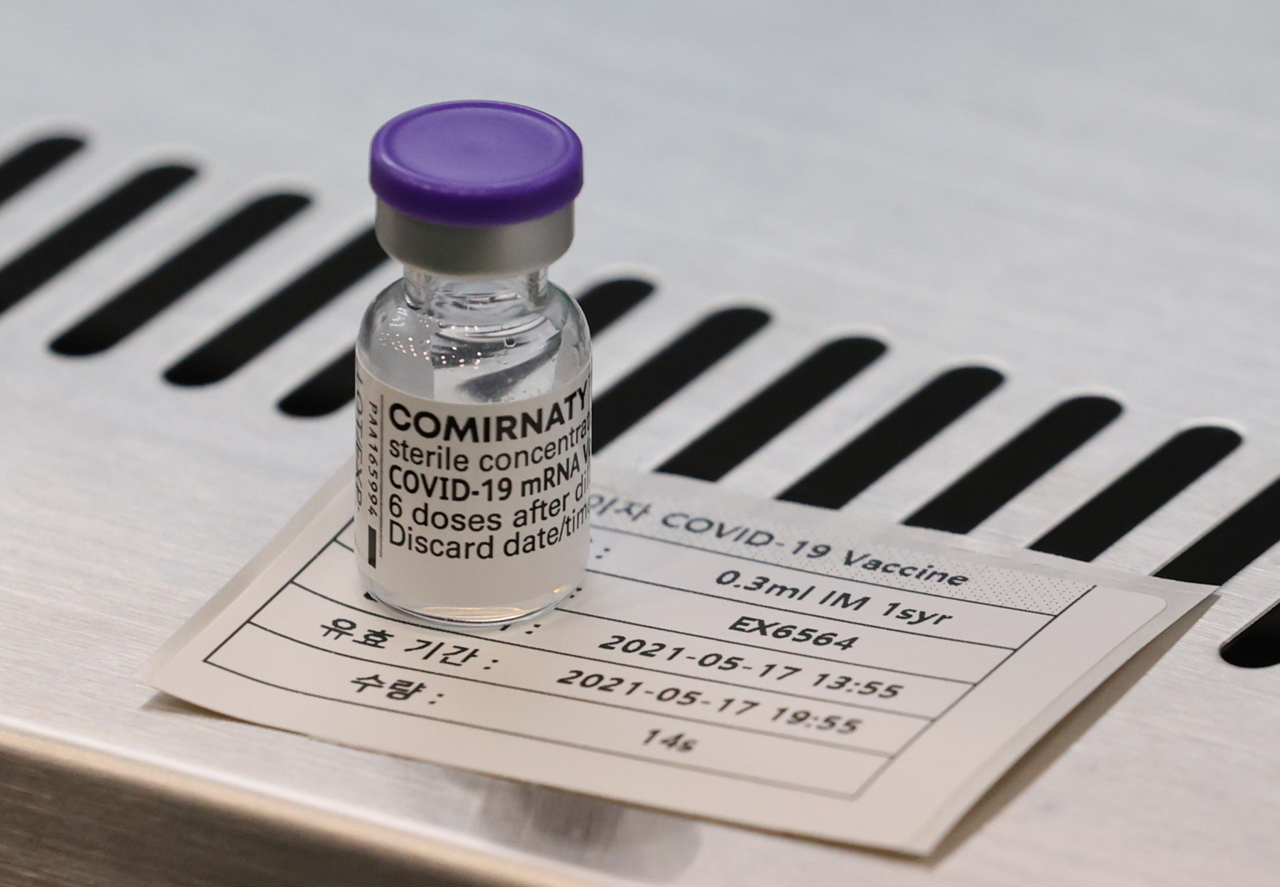 |
A Pfizer vaccine vial at a clinic in eastern Seoul (Yonhap) |
Some Koreans awaiting a COVID-19 vaccine are now wondering if they can take a vacation to the US to get inoculated.
Rocky Kim, who runs a travel agency in Alaska, said he has had a deluge of inquiries from people in Korea about its recently debuted tour package that includes getting Pfizer, Moderna or Johnson & Johnson vaccines.
“Here vaccinations are also offered to people who aren’t citizens or residents,” he said. Alaska Gov. Mike Dunleavy said in an April 16 tweet that “any tourist” coming to Alaska this summer will be able to get a vaccine free of charge at major airports.
The travel agency head said over the past couple of weeks he has gotten “more than a hundred calls” about vaccine tours.
The Pfizer package, which incidentally is the most popular, would take 24 days as the interval between the two doses is 21 days. “It’s because after a second dose, you are advised to take three days’ rest,” he said.
Mostly it’s young people or parents of children who have shown interest, he said. “Some of them said they could stay for as long as a month.”
An official at a major tour operator said the demand seems to be high especially among younger people -- namely, those in their late teens and early 20s whose turn for a vaccine is still months away. “The most commonly asked question is if they can get the Pfizer shot.”
The US, where “the popular mRNA vaccines” made by Pfizer and Moderna are most widely administered, is naturally the preferred destination, he said.
But a vaccination package is “ridden with too many risks” for tour agencies to actually go through with, he said. “We considered it, but it’s just not going to be profitable.”
He said the actual demand was thought to be much less than the hype surrounding it. “Few can afford it time-wise, first of all. On top of that, there are liability issues if people come down with side effects.”
Health officials said Koreans vaccinated abroad won’t be compensated for potential vaccine injuries through the state program, and that they won’t be exempt from the mandatory 14-day quarantine after arrival.
Study abroad services are also promoting programs that involve getting vaccinated in the US. One advertisement read, “Study English, get the Pfizer vaccine.”
Dr. Jung Ki-suck, a former Korea Centers for Disease Control and Prevention director, said traveling internationally for nonessential purposes in a pandemic was “not advisable” from a public health perspective.
“I’m worried that ‘vaccine tourists’ will slack on social distancing while they are there,” he said.
The chances are very low, but it’s possible to get infected after a first dose or even the second one, he said. “So you should wear face masks and stay socially distanced wherever you are, especially if you are in a high infection area.”
The apparent preference for a certain vaccine, or the eagerness to get inoculated ahead of their turn in Korea that is behind the recent hype was a result of a both risk communication and vaccine policy failure, according to preventive medicine professor Dr. Choi Jae-wook of Korea University.
“You can’t stop people from wanting a vaccine that they think is better,” he said. “But it’s the job of the authorities to convince them that the vaccines being offered here can be trusted, and also to deliver those jabs to the arms of people as quickly and safely as possible.”
By Kim Arin (
arin@heraldcorp.com)








